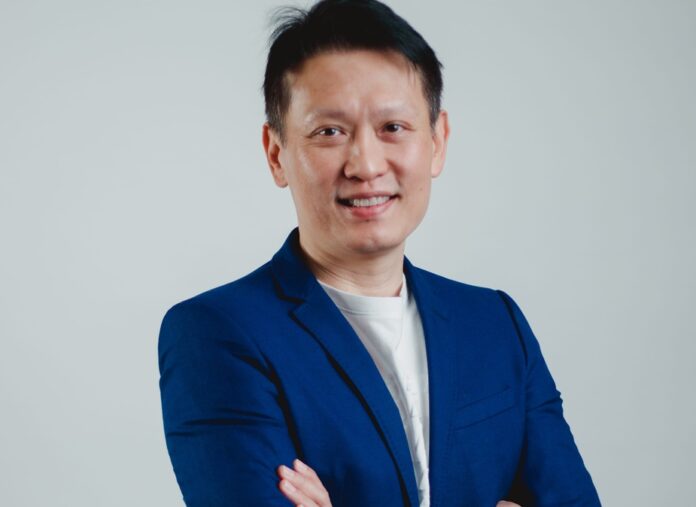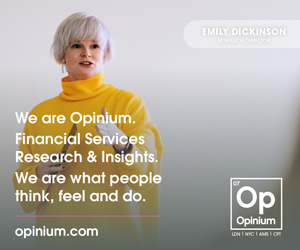The chief executive of the world’s largest cryptocurrency exchange believes 2025 marks the start of a new era for digital assets.
Speaking at the GFTN Forum Japan in Tokyo on March 3, Richard Teng of Binance told delegates that the broad, international narrative had recently changed from scepticism to one of significant potential.
“2024 started to change that narrative somehow,” said Teng. “When you have the likes of BlackRock that went from sceptic to believer… Fidelity, Charles Schwab, and then you look at all the financial institutions globally… and they start to say, ‘Hey, we should start to look at this,’ Everyone started to have a quick look.”
The election of US President Trump at the end of the year and the appointment of a tsar to oversee the sector’s development in the country also helped carry forth this positivity.
He noted that in both the House of Representatives and the Senate there were many pro-crypto legislators in place.
Teng added that Binance started 2024 with about 170 million users and ended the year with 240 million.
“We onboarded 70 million new users; many new institutions,” he said, “And the institutions that just traditionally trade commodities, FX, stocks and bonds are now having crypto trading [accounts].”
Teng said Binance had already gained another 22 million users in 2025, noting that the of growth of the sector “in the next five years is going to be much faster than the last five”.
“Crypto adoption is today about 7-8% of the global market,” he said. “And, in any technology, the next 10% of adoption will come very quickly.”
He noted that he expected the US to release clear rules and regulations, rather than what he called the “regulation by enforcement” of the last administration, which resulted in a wave of lawsuits and legal challenges.
Teng said that globally, attitudes to the sector had changed too, noting conversations he’d had at Davos at the World Economic Forum, which were unlike previous years.
“This year, whether I met the global leaders or top-level leaders, corporate financial institutions, it was not ‘we don’t have to support crypto, we don’t understand crypto’,” he said. The type of narrative coming up had been very different.
“They are asking ‘help us to understand this industry’,” he said. “And ‘we want to come up with proportionate rules that support innovation on the one hand while managing the risks on the other’. We are now working with global governments to come up with frameworks.”
Teng also said that institutional investors’ narrative has also changed.
“The question now is not whether to start allocating,” he said. “The question now is, should they do a 2% allocation, 3% allocation, or 5% allocation?”
However, Teng noted that this newfound global zeal to provide regularity clarity would likely lead to a lack of harmonisation, which brought its own issues.
“Countries that don’t have control rules and regulations, possibly are going to formulate, enact those rules and regulations,” he said. “So, every country around the world now start to regulate crypto, but they regulate crypto very differently.”
He noted that the classification of crypto was already challenging – especially for a company such as Binance that operates across 21 separate markets.
“In Singapore, it’s considered a payment token. In some parts of the world, it’s a security. In some parts of the world, it’s considered a commodity,” he said. “The standards and rules are very different. So that makes global deployment difficult.”
Teng also noted that the future looked bright for the development of stablecoins, with some areas primed to benefit, including the global remittance market.
“For low-denomination remittance… below $500, the fees can be anywhere between 10-15%,” he said. “With things like stablecoins, you can do it on an instantaneous basis at a fraction of the cost.
“I visit many different parts of the world, including developing countries, frontier markets, where financial inclusion is less than 20%, meaning many people have no access to payment system, there’s no store of wealth.”
He said that while cryptocurrencies and stablecoins may not have been created for this reason specifically, “the truth is crypto exists to solve problems in many parts of the world”.
Using crypto or stablecoins would enable international payment and the fraction of the cost “and their loved ones get the money instantaneously instead of having to wait for two or three days”.
“We see all those important use cases,” he said. “And I think now financial institutions are waking up to it. The merchants, the payment vendors, etc, I think they are embracing it, which is why you see a huge uptick in terms of stablecoin growth. And I think it’s just the beginning.”
For Teng, the future looks positive – and is taking a different path to traditional finance.
“For any asset class in the history of the world, you always start off with institutional adoption,” he said. “It goes down to corporate, high-net-worth… and then, finally, to retail. Crypto is the only asset class that started with retail adoption; retail embracement.”
He added that “for the longest time, the people up the value chain said, ‘Look, it’s not going to last. Regulators are not spending time in this space to develop frameworks to regulate this space’. And I think that has changed”.
“People see the usage, the important use cases, the growth of crypto, and now the rest of the value chain are all adopting this,” Teng said. “Once the institutions start to come through, once regulators start to come through, the development in this space is going to be very fast in the next five years.”
Teng said the appetite for crypto would spread beyond sovereign wealth funds.
“The corporate treasurers are going to come true, endowments, trusts, etc. If you look at the entire value chain of investments, it’s going to come to crypto,” he said. “I think it’s going to be very big in terms of the universe, and retail, which has always been embracing this space, will continue to be extremely important and we will continue to embrace this sector.”
GFTN Forum Japan is taking place in Tokyo March 3-7.



